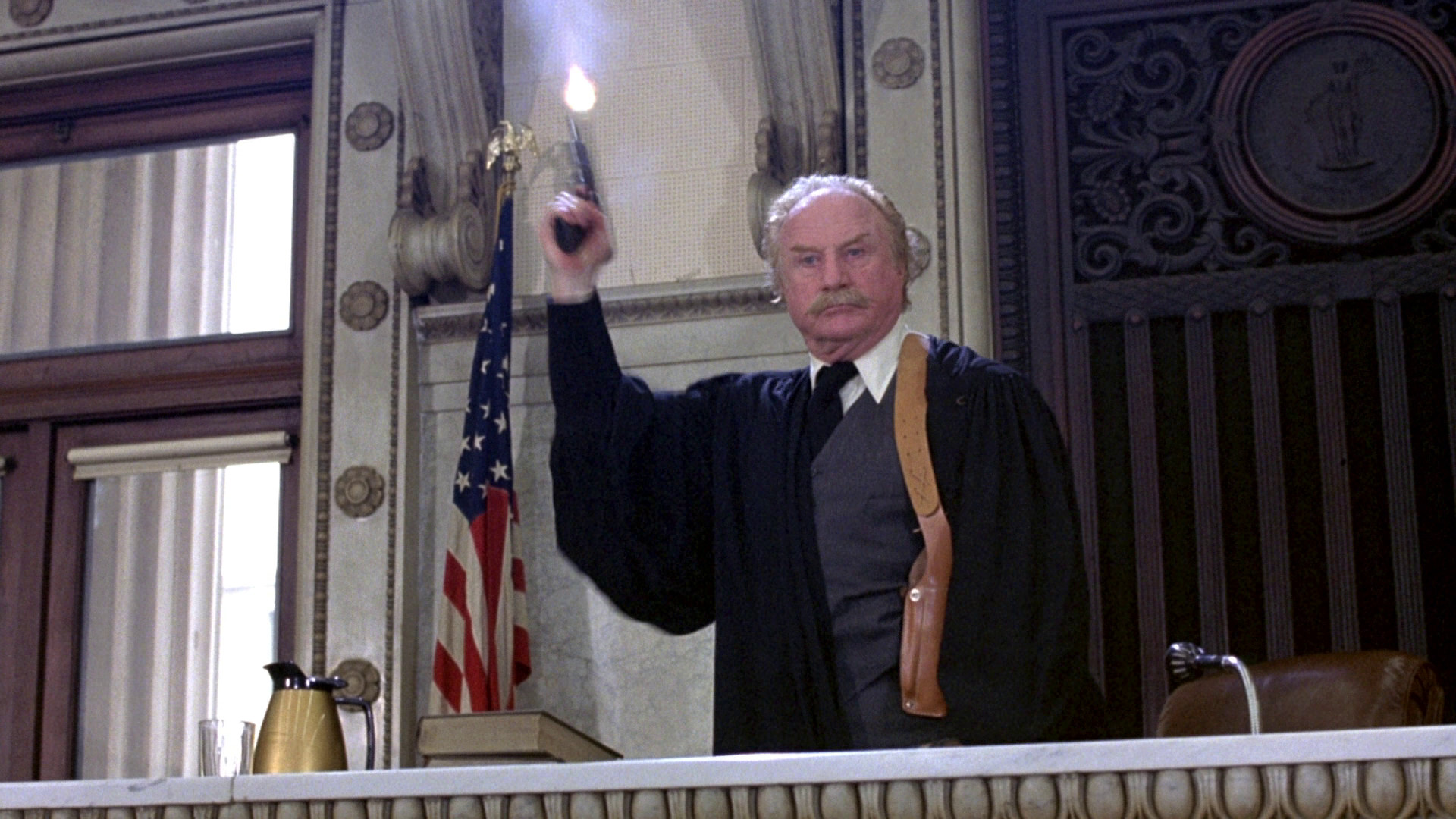It is commonly regarded that a presiding judge is the ultimate authority in the courtroom. If they go overboard, that would be subject to investigation (judicial conduct or crime) afterwards. However, while the court is in session, to what extent can the judge commit offences before being stopped by law enforcement, cuffed, and dragged out of the bench to cells?
I was watching ...And Justice For All (1979) the other night, and this question got inspired by the scene at 14:35 where Judge Rayford pulls out a pistol and shoots at the ceiling as a means of putting the courtroom in order (there was a brawl going on):
If a judge:
- pulled out a machine gun,
- started shooting everybody,
- took hostages,
- barricaded the courtroom,
- while formally continuing the court "session,"
legally, would law enforcement be permitted to intervene?
If so, is there a bright line dividing when a presiding judge can and cannot be subdued?
